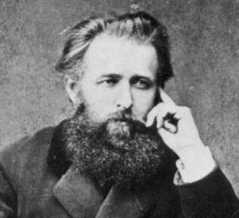Hello, comrades. I was wondering why we allowed “liberal” to become a dirty word? A “liberal” is someone favorable to progress or reform, and also someone in favor of individual rights and liberties.
I understand American fake liberals largely discredited the word, but in Lemmygrad forums, I see true liberalism every day: people discuss progressive ideas all the time, and are very tolerant of each other. Why do we allow American fake liberals to ruin the experience for us all? The word “liberal” should once again ring positive, while fake liberals should be called “faux liberals” which they are, don’t you agree?


As others have pointed out (but it bears repeating), the distinction between idealism and materialism is fundamental. Essentially, idealists believe that ideas are the driving force of history. That the world we live in is shaped by our thoughts. On the other hand, materialists believe that history is a process of change in the material conditions, and that our thoughts are simply a reflection of these conditions.
Why is this important? Well, Liberalism is an idealistic framework. It starts with notions like republican democracy, rule of law, free markets, civil liberties, property rights, etc. and assumes that if enough people embrace these ideas, the conditions of the world will change to reflect them. However, a careful enough reading of history would indicate that in the past two and a half centuries since the “Enlightenment,” this has never been the case. Powerful liberal institutions such as the legislatures, the courts, public executives, the press, and the armed forces they assemble to preserve their power have always served as perpetrators, enablers and apologists for the state’s most heinous atrocities.
As materialists, we don’t look to these institutions and “great men” to deliver us to the promised land. We see these institutions as an outgrowth of the underlying material conditions and social relations. Further, we see the whole canon of Liberal philosophy as an outgrowth of the ascendent Bourgeois class’s triumph over feudal monarchy. The limited opening of civil liberties and indirect democracy suited them just fine, as their wealth and power was based in commodity production rather than direct subordination of peasants by their lords. The introduction of legislatures and due process was a benefit to this new class of Capitalists as well, by creating a regulatory board which the class could use to limit the action of individuals from leading to their collective destruction.
As materialists, and as Marxists in particular, we see class struggle as the primary contradiction in society and the driving force of history. We do not think communism can be achieved by rhetoric, but by action. Not by convincing the oppressors to treat the oppressed more nicely, but by attacking the material basis which makes systemic inequity possible in the first place. This often puts us at odds with the hegemonic Liberal institutions which exist to carefully curate the status quo, defending capital accumulation and private property above all else.
There are some good things which have come out of Liberalism, as Liberalism was a progressive force in its time (things like The Declaration of The Rights of Man and the Citizen, and Civil Disobedience come to mind). But that time is long past. Liberalism has completely transformed the world, and there is nothing more we can get out of it by doing more Liberalism. We are straining the limits of proletarianization and capital accumulation, and any ideological framework which centers individual liberty above collective wellbeing is woefully inadequate to deal with the situation.
One more thing: those ideas are also the platonic ones, regarding even supernatural elements. Idealists not only form with “ideals then matter” like in “action” but literally that ideas came before even the first time they wete thought, and they form their “physical equivalent”.
Very well written, thank you.